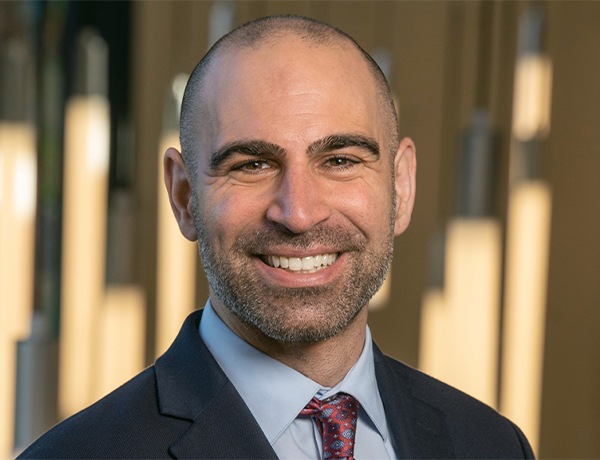
As fury over ChatGPT began to subside, headlines surfaced about another kind of inauthentic content—AI-generated pictures and audio clips, and even videos of people appearing to say things they’ve never actually said. The genre is called deep fakes, and they’ve made media consumers once again question what they see online.
University of Hartford Applied Associate Professor Adam Chiara has long known this moment was coming, and recently spoke with CT Public Media and Yahoo News about it.
Chiara teaches communication in UHart’s College of Arts and Sciences and has extensively studied deep fakes for years, as well as media literacy. Though the controversial digital content just came to the forefront, the concept isn’t new.
“I was a contributor for The Hill in 2018, and I pitched a story to my editor about the impact deep fakes will have on politics. My editor asked me what deep fakes were. That's when I realized this was still a relatively obscure topic, but I was confident that one day it was going to be woven into many aspects of society. So, I kept up on developments with deep fakes and began teaching about it in my classes,” Chiara explains.
The phrase “deep fakes” developed in 2017, Chiara recently told CT Public Media in an interview on the issue. Chiara spoke in the news segment soon after U.S. Senator Richard Blumenthal played an audio recording of what seemed to be his voice at a Senate Judiciary Hearing, but was not a true recording of him speaking.
Chiara said AI technology has evolved significantly, and because it will grow more popular with even more uses, government regulations for deep fakes should be considered as soon as possible. Any regulations proposed will require input from experts across multiple sectors and could see a lengthy approval process, he added.
Deep fakes add another layer of media literacy for both parents and children, as they sift through websites and social media in their day-to-day lives and determine what’s authentic or questionable. He recently spoke with Yahoo News about ways to introduce the idea to kids when the right moment occurs.
“While technology and media changes, the ability to think critically transcends mediums. By helping to teach others this vital skill, you're setting them up for a lifetime of knowledge, no matter how the information ecosystem evolves,” Chiara says.